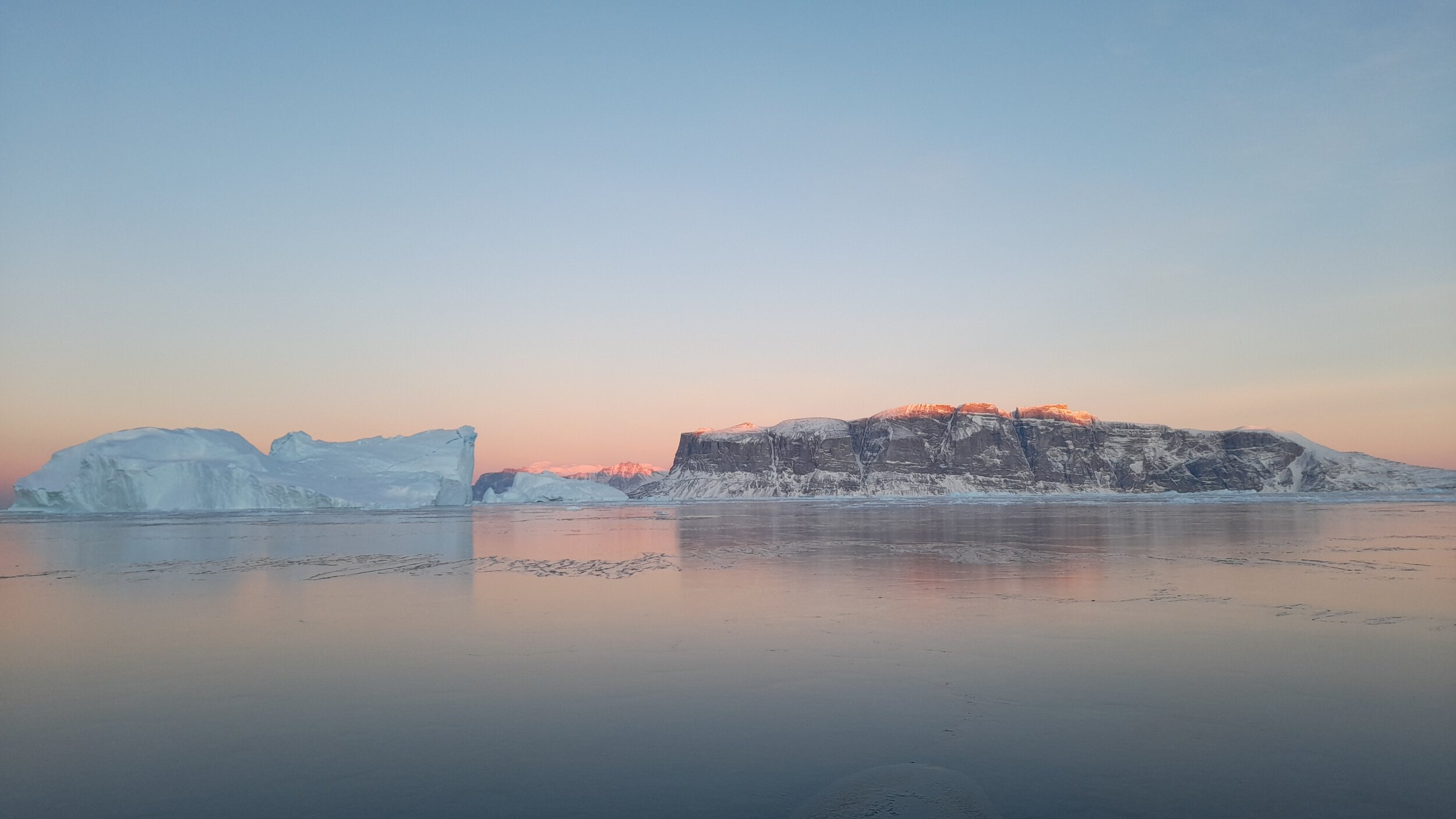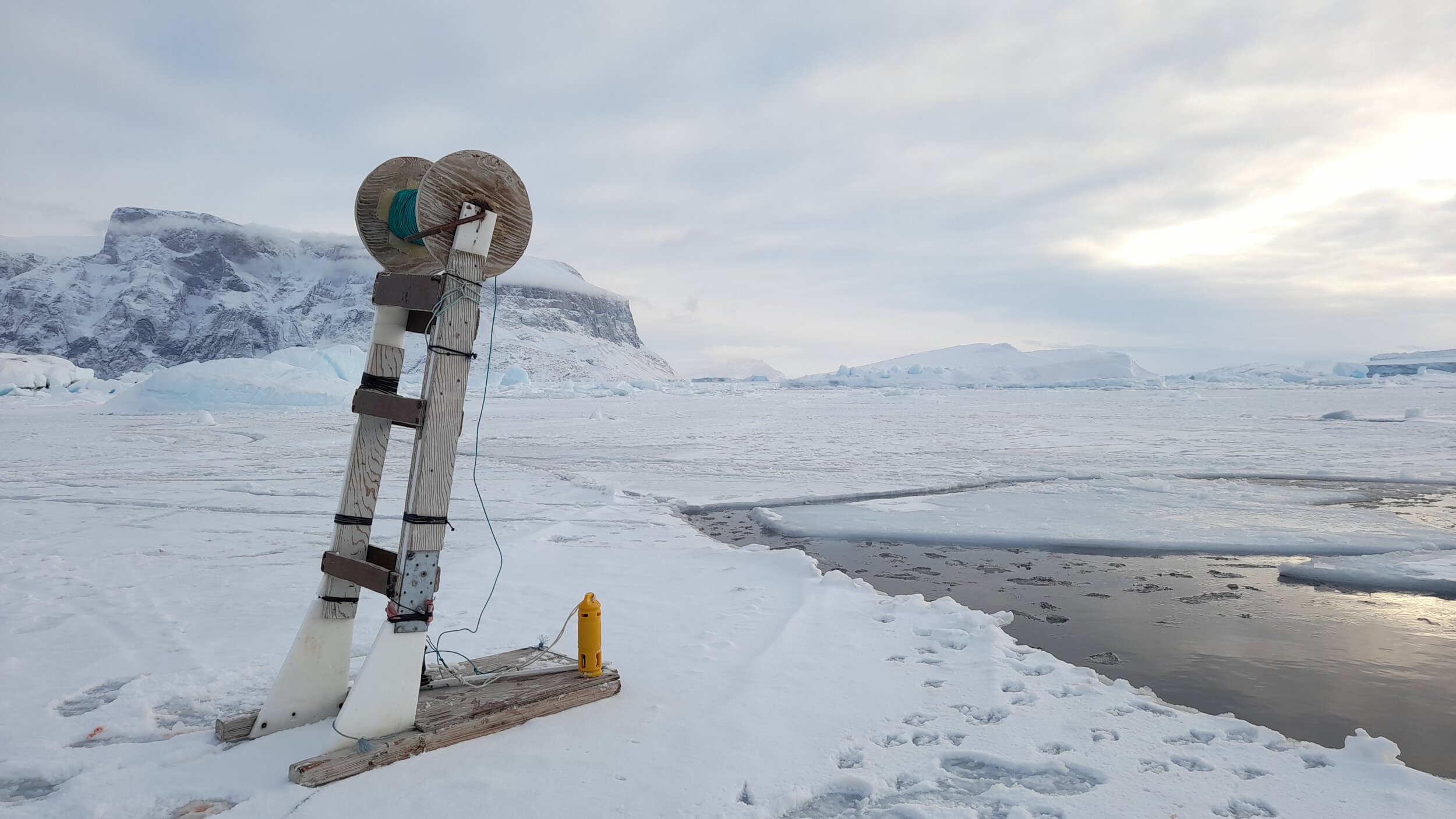Moana Project sensors take the temperature in Greenland
Outputs of the Moana Project have ended up in Greenland! Research being undertaken in Uummannaq, Greenland in collaboration with Inuit hunters and fishers is using the Mangōpare sensor for ocean observation.
The Mangōpare sensor was developed by ZebraTech as part of the Moana Project’s research to increase the number of coastal ocean temperature data points, improving ocean predictions and our understanding of ocean dynamics – particularly marine heatwaves - which is a world away from the icy environment in Greenland where temperatures this time of the year reach an average high of -10°c above land.
The Berring Data Collective who organised the effort with the Uummannaq Polar Institute said: “There are extra challenges for sensors operating in sea ice and extreme temperatures. Fortunately, ZebraTech in New Zealand has continued to overcome every technical obstacle caused by these harsh conditions.”
“Seas that are covered with seasonal sea ice are particularly challenging to monitor using conventional techniques. However, the processes of ice formation and melting are a key driver of the circulation patterns of the entire ocean, meaning it is of the utmost importance to monitor these seas.”
Seeing science from Aotearoa, NZ being used and benefiting research from both a scientific and social perspective is so exciting, and we can’t wait to see more!





